there is a strange loneliness that emerges in the age of being seen. not in the traditional sense — not the loneliness of isolation or invisibility — but a newer kind, more diffuse, born from the pressure to narrate our internal lives before we’ve had the chance to understand them. this is the paradox of being emotionally fluent in public: you are both known and not known, witnessed yet not fully felt. and perhaps what’s most disorienting is how natural this has come to feel — how seamless the slide has been from the sacred interior to the shared, captioned, and gently aestheticized version of it.
we’ve turned vulnerability into vocabulary, but vocabulary is not the same as intimacy. somewhere along the way, being “emotionally honest” began to mean being emotionally available — to the feed, to the audience, to the invisible architecture of social media where emotional expression is no longer private but performative. not fake, exactly. not inauthentic. just shaped, sculpted, polished enough to be consumed. pain softened into poetic phrasing. healing broken down into digestible arcs. the rawness of grief translated into language that earns empathy but rarely leaves room for the actual mess it came from. we scroll past trauma disclosures in pastel carousels. we hear about therapy takeaways over lo-fi background tracks. we’re watching people process things in real-time, before the wounds have even crusted over.
it’s not a moral failing. it’s cultural conditioning — shaped by the platforms we inhabit and the algorithms that reward disclosure. the more emotionally transparent you are, the more connection you might generate. the more poetic your pain, the more shareable your story. and in some ways, it’s a relief to live in a world that no longer asks us to hide our feelings under layers of shame. but there is a cost to collapsing the boundary between internal processing and public expression. when every feeling becomes content, when every emotional moment is filtered through the lens of how it will be received, something shifts in the nature of the emotion itself. we start preparing for our breakdowns like we prepare for dinner parties. how will it sound? how will it look? what will they think?
there’s a kind of emotional capitalism at play here — not in the financial sense, but in the sense of emotional currency. the curated self becomes a performance, and that performance is monetized in approval. likes, shares, comments: little validations that we are being real in just the right way. this isn’t new — theorists like baudrillard were already writing about hyperreality in the 1980s, warning us that in postmodern culture, representation would become more real than reality itself. what is social media if not the perfect manifestation of that theory? our emotional truths, once raw and unfiltered, are now encoded in the language of relevance.
but there’s another layer here, more intimate and harder to name. the internal confusion that arises when you know how to sound emotionally honest, but aren’t sure you actually feel connected to what you’re saying. it’s one thing to process something privately and share it when it’s ready. it’s another to feel obligated to share in order to validate your own emotional life. and it’s another thing entirely to curate your sadness for an audience and then wonder why the relief never comes. that’s the part we don’t talk about enough: the emptiness that follows a “vulnerable” post. the sense that even though people saw it, liked it, related to it — nothing inside you feels any different. because some truths aren’t meant to be seen. they’re meant to be lived with. held in messy, non-narratable silence.
i’m not suggesting a return to secrecy or stoicism. there is immense value in public vulnerability, in the power of witnessing and being witnessed. for many, social media has been the only place they could speak openly about abuse, about mental illness, about survival. entire movements — #metoo, #menthealthawareness, #traumainformed — have flourished because people chose to speak, to risk their shame and step into the light. but we’ve reached a saturation point. and at this point, what’s being rewarded is not the truth, but the appearance of it. we’ve mistaken access for connection. we’ve confused expression with healing.
emotional honesty, in its truest form, is not always articulate. it is awkward and nonlinear and often doesn’t look like much from the outside. it lives in voice notes you never send, in the way you go silent for a few days without knowing why. it’s in the journal entry that contradicts what you said online. it’s in the tears that come with no explanation. it’s not tidy. it doesn’t sell. and it’s often not sharable — not because it’s shameful, but because it’s sacred.
there’s a passage in elena ferrante’s days of abandonment that speaks to this. the protagonist is unraveling, undone by betrayal, and the narrative doesn’t offer closure or clarity. it just lingers in the mess. and reading it, you feel both uncomfortable and seen. because that’s what emotional honesty looks like when it’s not for show: unresolved, raw, unpretty. a version of truth that doesn’t need to be validated to be real.
we’ve grown allergic to that kind of honesty. we prefer the clean arc — the reveal, the resilience, the radiant comeback. and social media accelerates that arc. it pressures us to process faster, to move from breakdown to breakthrough with the kind of speed that makes actual healing impossible. the expectation is: if you can name it, you must be past it. if you can post about it, you must be okay. but language does not always mean resolution. sometimes it’s just the beginning of understanding.
and what about the emotional truths that don’t make sense yet? the ones that are still tangled, contradictory, half-formed? in the age of “speak your truth,” we forget that some truths need time to emerge. that premature articulation can flatten them. that turning them into content too soon can rob them of their meaning. there is emotional wisdom in silence. not the silence of repression, but the silence of gestation. a slowness that allows you to feel before you explain. to be before you narrate.
maybe that’s the question we should be asking: not “am i being honest?” but “do i feel safe being honest when no one is watching?” am i making sense of my experiences for myself — or for the imagined gaze of others? am i sharing because i want to connect — or because i’ve learned that this is what connection looks like? am i being emotionally available — or just emotionally accessible?
because those are different things. accessibility is about being legible to others. availability is about being present with yourself. and presence — real, embodied, rooted presence — rarely happens in the middle of performing. it happens when you close the app and sit with the version of you that doesn’t need to be impressive or understood. it happens when you feel something that scares you and don’t rush to turn it into a story. it happens when you remember that your interior life is allowed to be yours alone.
none of this means we should stop sharing. but maybe we need to recalibrate what sharing means. maybe it’s not about confessing everything all the time. maybe it’s about discerning what needs to be said and what deserves to be held. maybe it’s about remembering that emotional honesty is not a public act — it’s a private practice that may or may not take the form of speech. and maybe the most honest thing we can do right now is stop performing honesty and start living it — slowly, quietly, away from the lens. because healing was never meant to be a spectacle. it was meant to be a homecoming.


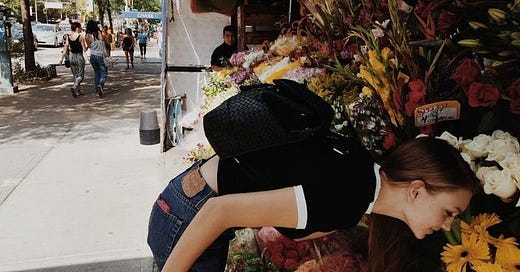



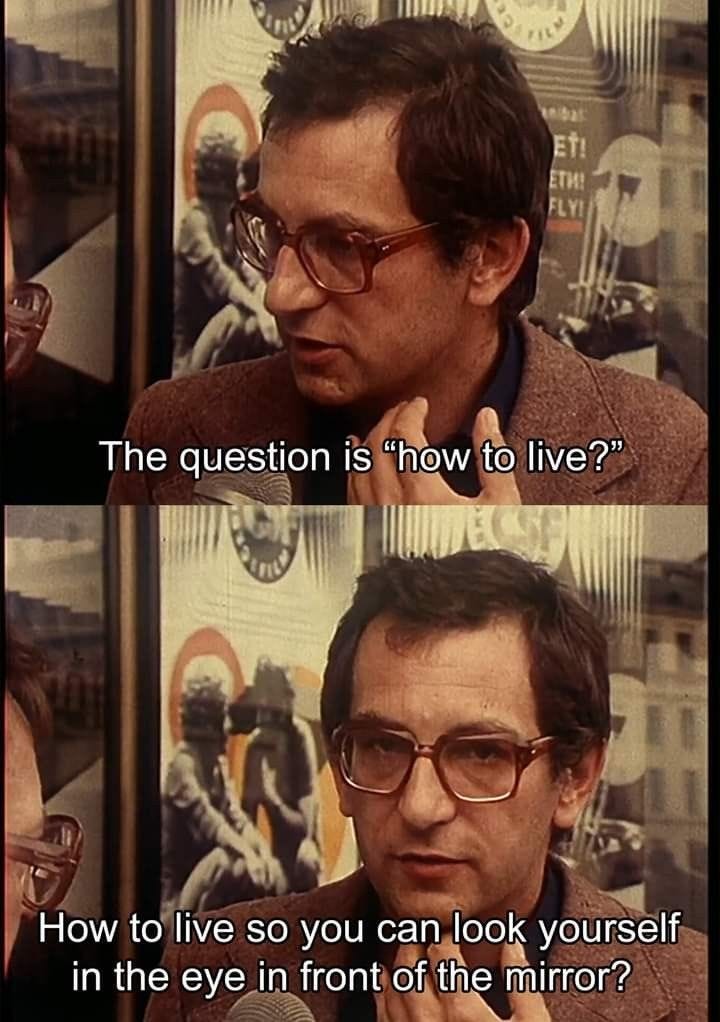
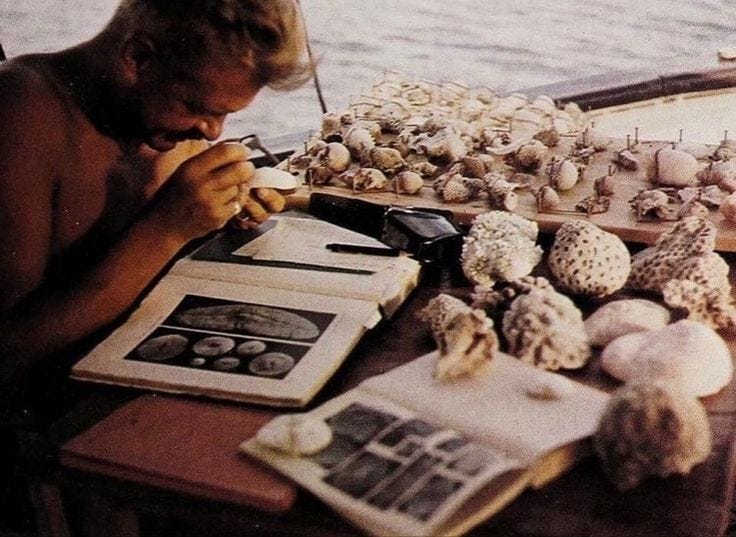
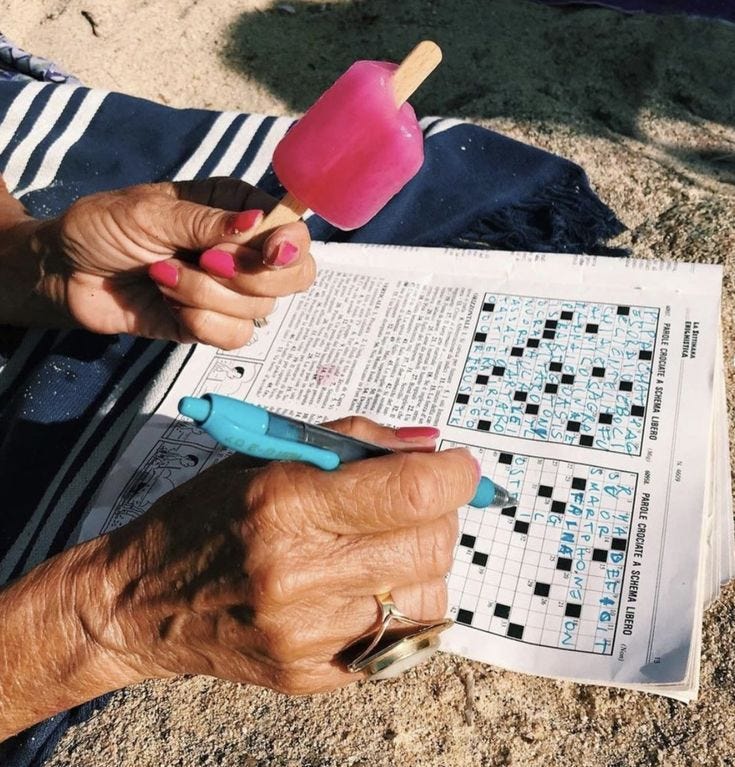
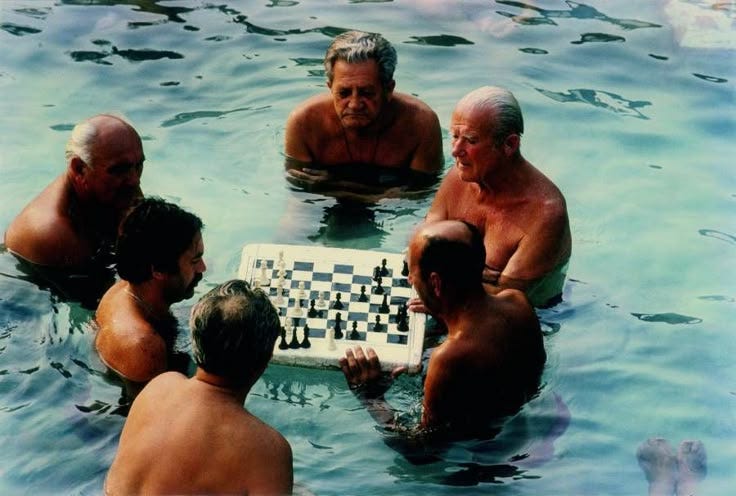
I think that your thought is so interesting and it brings up questions on motive, boundaries, and balance. What is the motive behind sharing your thoughts? Is it for personal growth and collective service or to get more followers, popularity, wealth? Are you listening to your needs first and creating boundaries? What am I - the feeling one - ready to share? What will I keep private? And balance... am I running to share my emotions? Has it become addictive, uncontrollable? Am I being honest? All these things are important to evacuate in a world where everything there are often unhealthy motives, no boundaries, everything, including our emotions lack balance.
Thank you for this. Something for all of us here to think about so that we take care of ourselves first. If we fail to do this, we have little to offer anyone. Self-love and self-care first. Connection, support, and service second. xo
I've been feeling for a while that all this social media "vulnerability" was becoming performative. I am a social media manager and I've seen it more and more in marketing discourse. Be vulnerable, be messy, etc. Which is good when it's done with measure, but certainly not good when it goes to the other side. Showing your every breakdown and failure and learning arc publicly for content. There's also a lot of content on "anxiety" later, almost.as if it's trendy to say that we are. Not that it's wrong to say, again, but when it starts feeling performtive and trendy and artificial, even displaying pain becomes money. I've started to think that showing a bit of what we're comfortable with is okay, but some other things should probably be reserved for ourselves and our closest relationships.